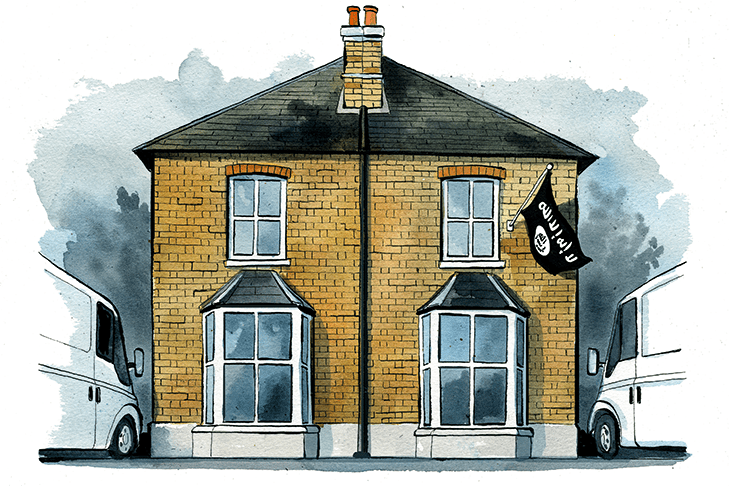Arrests for terrorist-related activity give a worrying insight into the rate at which young people are being targeted and radicalised. All age groups witnessed a fall in terror-related arrests for the year ending September 2020, except for one: those under eighteen, which doubled to account for eight (and subsequently 10) per cent of all such arrests. This is the highest proportion ever seen in any annual period to date.
We also know that, all too often, the friends and relatives of those who are in danger of becoming radicalised are failing to act on their concerns.
Referrals to Prevent, which aims to ‘stop people becoming terrorists or supporting terrorism’, saw an overall increase of 10 per cent in the year to March 2020. However, when combined, ‘friends and family’ and ‘community’ sectors accounted for just four per cent of total referrals. In fact, in the years since March 2016 when records began, referrals from ‘friends and family’ and ‘community’ sectors have never peaked above four and five per cent respectively. This is in stark contrast to referral rates from police and education (the two highest referring sectors), which in the same time period have never fallen below 31 per cent.
Why are ‘friends and family’ and ‘communities’, who are often first to identify behaviour indicative of radicalisation, failing to speak out?
Why are children and young people over-represented in both Prevent referrals and arrests for terrorist-related activity? And why are friends and family and communities, who are often first to identify behaviour indicative of radicalisation, failing to speak out?
While the police and partner agencies work hard to support those who have become radicalised or are vulnerable to becoming so, they cannot combat radicalisation alone: without the help of those in the community, the efforts of the authorities will continue only to scratch the surface
The Terrorism and Extremism Disclosure Scheme (TEDS) offers one solution to this problem. TEDS takes inspiration from disclosure schemes already employed to safeguard and protect children and vulnerable people from other types of exploitation and abuse: including the Child Sexual Offence Disclosure Scheme (CSODS), otherwise known as Sarah’s Law; and the Domestic Violence Disclosure Scheme (DVDS), known as Claire’s Law.
The guiding principle of these proposed schemes is to take safeguarding further upstream, by preventing access to children among those who may pose a serious safeguarding risk. Having delivered both disclosure schemes in a previous police role investigating multiple forms of abuse and exploitation, it is clear to me that it could be a vital tool in our collective efforts to prevent children and young people being radicalised and drawn into terrorism.
TEDS would work by responsibly notifying parents, carers and guardians where a person connected with their child has a terrorism and racially-or religiously-motivated criminal offending history. Disclosure can either be reactive, following an application by a parent, carer or guardian; or proactive, disclosed by police if and when relevant information emerges. Disclosure would then allow a parent, carer or guardian to make an informed decision about an individual’s suitability to have access to their child, and, ultimately, keep them safe from those who wish to exploit them.
Helpfully, this scheme would not require the passing of any new legislation. Disclosure would instead be enabled by existing police common law powers, which permit the disclosure of information for purposes including the prevention of crime (where there is a ‘pressing social need’ to disclose). Any disclosure would be made in accordance with the Data Protection and Human rights Acts of 1998.
The combination of consistently and disproportionately low Prevent referral rates from friends and family and community sectors, and the doubling of terror-related arrests for those under eighteen, clearly illustrates the urgent need to explore new ways to help prevent radicalisation. The introduction of TEDS would help achieve this by empowering ‘friends and family’ and ‘community’ sectors to play an integral part in a more effective counter-radicalisation provision, and safeguard our children from being radicalised and drawn into terrorism.






Comments